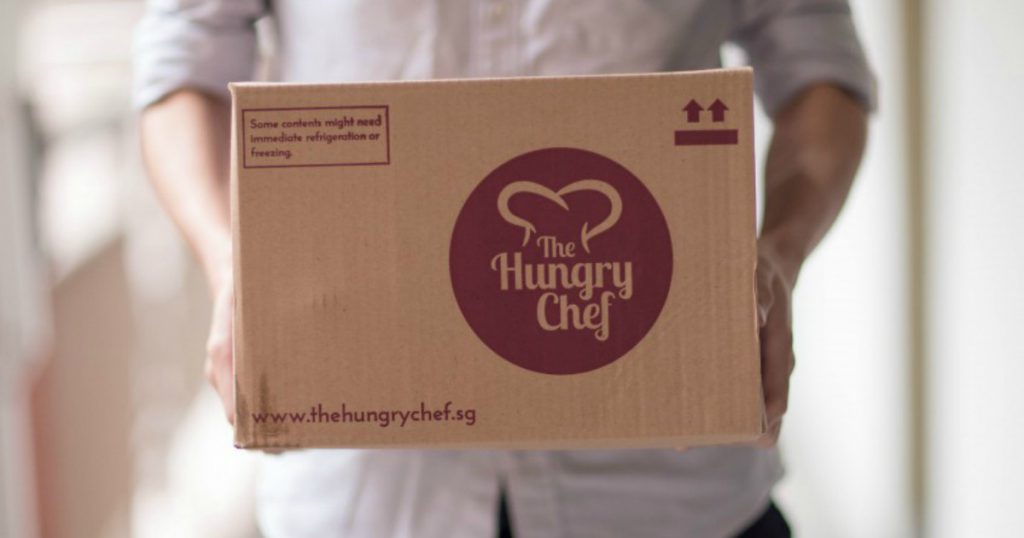Singapore is a foodie nation, a veritable salad bowl of edible cultures that leave us wanting for nothing.
When it comes to eating out, the physical convenience allows us to get food at our fingertips and supplementing this ease are the delivery startups that allow us to order takeaway from restaurants halfway across the island.
And yet certain food startups just aren’t surviving in Singapore.
Eating In? Not So Much.
The startups I’m referring to are those that deliver recipe and ingredients boxes to your house, such as ChefBox and The Hungry Chef. If these names seem unfamiliar, there’s a good reason.
None of them are active today.
In 2015, The Hungry Chef’s founder Ruchi Ballal shared how they wanted to “unite families through home cooking” and were confident that their service would work. Today they are just a food blog, and a simple enquiry told me that they have since stopped operating as a delivery startup for over a year.
Meanwhile, gourmet food box You Cook It! has exited the Singapore market, and is instead en route to France. As for ChefBox, founder Max Tiong also shared that they is no longer in service, and he is instead focusing on catering startup DishDash.

It’s not as simple as these startups lacking financial power, seeing how RedMart’s own Homemade service seems to have died. So why is it that they have not found lasting love?
We compiled a few possible reasons.
1. Limited Traction For Home Cooking
It’s a well-known fact that Singaporeans lack the time to cook or even eat together. And as the work hours get longer, it’s more convenient to dine out or get takeaway.
Millennials today are likely to have grown up with domestic helpers and might not be familiar with cooking. Meanwhile, people who do cook extensively tend to be restricted to housewives and domestic helpers. As a result, they’re also more experienced in shopping and ingredient prep, and are unlikely to use these startups.

2. Social Cooking
This does not preclude millennials from cooking entirely however, as there are plenty with a penchant for it. The difference is that these home chefs are motivated more by recreation as opposed to necessity.
I reached out to friends who cook frequently for their opinion, and a common element of their replies was that they would only use these services for special occasions.
“I know a couple of friends who used the service for date night, but only once. After a while the novelty wore off completely. As for myself, I only need the recipe once [so there would be no need to use the service again],” one guy shared.
In addition, he found no value in these services as “he enjoyed the process of grocery shopping”.
On a personal note, while I would not mind trying it out, a concern I would have would be the exact quantity of ingredients. It’d be troublesome to increase the quantity, especially once orders have been made) and neither is there much flexibility in the recipes.
3. Personal Skill (Or Lack Thereof)
These startups boxes come with recipes and a fixed amount of ingredients, and in terms of “do-overs” and cooking techniques, they might be a stretch for amateur cooks looking to get started.
Two ladies on our team shared that they would not mind using these services to learn how to cook for their families, but one did admit that once she had picked up the fundamentals, she saw no point in continuing.
4. This Is Singapore
Ironically Singapore’s love for food is also a reason why these startups do not fare well.
The convenience of both affordable as well as more premium food options make dining out or takeaway attractive solutions to hunger. For those who still prefer to cook, the convenience of grocery shopping and online recipes also render these startups irrelevant.
A Flawed Model?
Does this mean that recipe-ingredient startups don’t work at all? Not true.
Recipe-ingredient startups Batterful and Bakestarters appear to be coming along well. But the difference lies in that these two work with baking recipes.
For those with baking experience, you’d know that having exact ingredient quantity is extremely important. In addition, there would not be the mess of having to deal with leftover flour or flavourings that are “neither here nor there”.

One aspect that perhaps could have been improved for DIY food boxes was their ability to motivate Singaporeans to cook. A winning startup that I call to point here is The MeatMen, whose success on Facebook has exploded into book deals.
They don’t handle subscription services, but they are a prime example of how best to motivate people to start cooking, and their success is perhaps something to learn from.
This article was written based on the author’s opinion and may not be reflective of the public sentiment.
Featured Image Credit: Nanyang Chronicle










